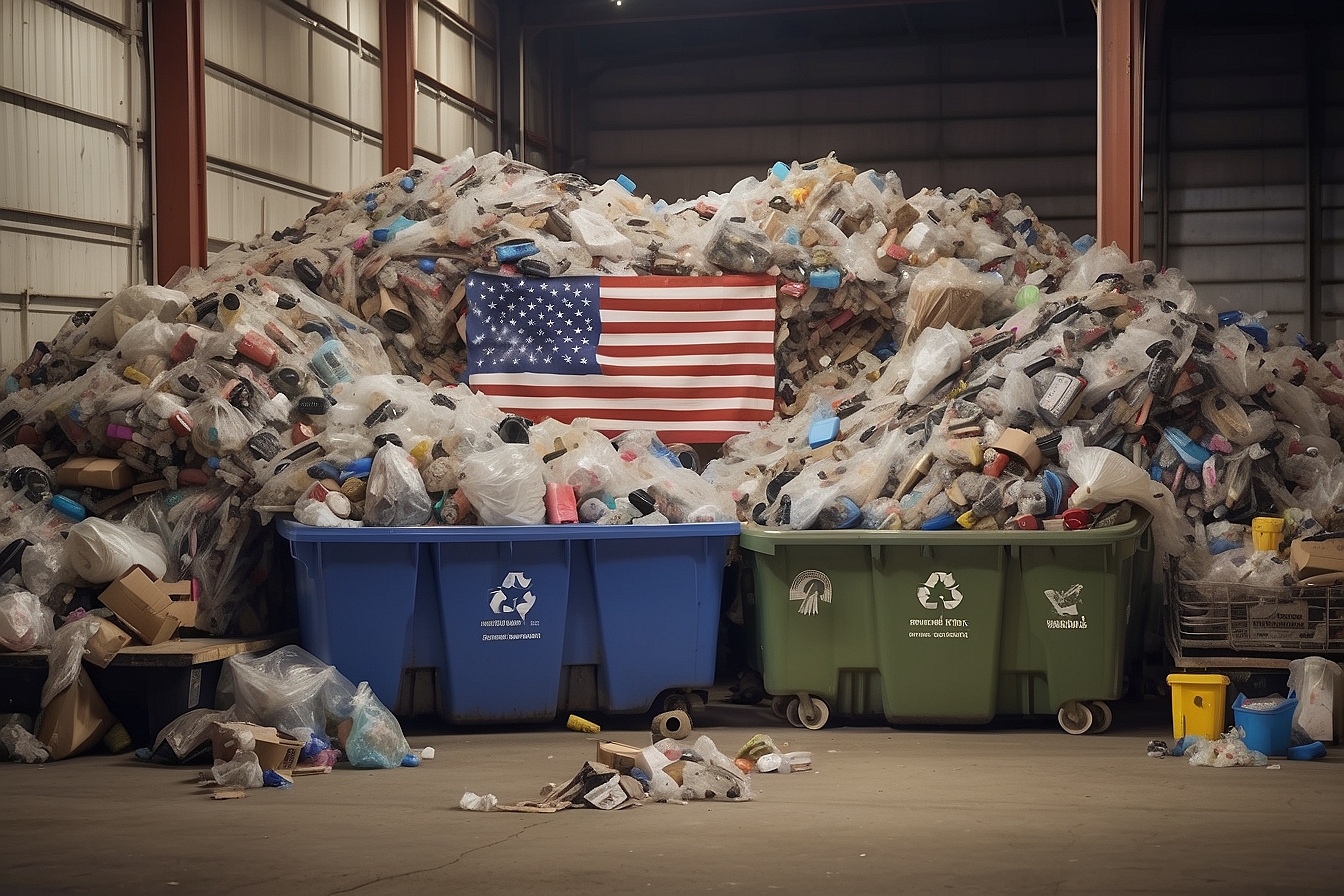In every workplace, we witness an all-too-familiar scene: piles of waste casting a shadow over our daily grind. The office bins, overflowing with paper, plastic and forlorn pieces of technology, tell the tale of our consumption.
It’s startling to think that the average desk jockey is responsible for around 2 pounds of paper and cardboard detritus every single day. As enthusiasts fervently committed to sustainability, we’ve delved deep into the data troves to bring you effective solutions that can significantly reduce this excess.
Stay tuned as we share savvy approaches that can transform your work environment into a bastion of eco-friendliness—and do keep an ear out for one particular suggestion; it really is quite the revelation!
Key Takeaways
- Composting organic materials like fruit peels and coffee grounds in the office cuts down waste and helps local community gardens.
- Shifting from paper to digital documents saves trees, reduces the need for storage space, and improves efficiency at work.
- Setting up a recycling program with clearly marked bins throughout the workplace encourages employees to recycle more effectively.
- Choosing reusable items over single – use products such as water bottles, coffee mugs, napkins, and pens significantly lessens environmental impact.
- Training staff on sustainable practices boosts participation in eco-friendly initiatives leading to a greener office environment.
Steps to Reduce Office Waste
Start composting to reduce organic waste, transition to digital files and invoices for a paperless office, encourage recycling and provide recycling bins, avoid single-use items, and use refillable pens.
These simple steps can significantly minimise office waste and contribute to sustainable practices.
Start composting
Composting is a fantastic way to reduce waste in our office. It turns our organic rubbish into valuable soil enricher, demonstrating our commitment to ecofriendly office initiatives.
- We set up a designated compost bin in the break room for fruit peels, coffee grounds, and tea bags.
- Our team assigns composting duties on a rotating basis to keep the process running smoothly.
- We educate everyone about what can and cannot go into the compost to prevent contamination.
- Our office chooses a local community garden to donate our compost, reinforcing our support for sustainable practices.
- We monitor the amount of waste reduced by composting to see the positive environmental impact we make.
- Our office implements green policies that encourage employees to participate actively in composting efforts.
Transition to digital files and invoices
- Implement a paperless policy by encouraging employees to scan and save documents digitally instead of printing them out.
- Invest in electronic document management systems to streamline the organisation, storage, retrieval, and sharing of files within the office.
- Utilise cloud – based storage solutions for easy access to important documents from any location, reducing the reliance on physical copies.
- Notify suppliers and partners about your commitment to digital invoicing, requesting electronic billing instead of paper invoices.
- Train employees on digital file management best practices to ensure smooth adoption of these new processes.
Encourage recycling and provide recycling bins
We have successfully transitioned to digital files and invoices, but now we need to focus on encouraging recycling and providing recycling bins. Here are some simple steps we can take to make this happen:
- Implement a comprehensive office recycling programme that includes paper, plastic, glass, and electronic equipment.
- Place clearly marked recycling bins in easily accessible locations throughout the office, making it convenient for everyone to recycle.
- Educate employees on the importance of recycling and provide regular updates on the impact of their efforts.
- Set clear waste reduction goals and track progress regularly to keep everyone motivated.
- Consider upcycling old materials such as cardboard boxes or packaging materials for creative projects within the office.
- Implement a waste reduction policy that emphasises the importance of reusing and recycling materials whenever possible.
- Offer incentives for employees who consistently contribute to the office’s waste reduction efforts, creating a culture of sustainability within the workplace.
Avoid single-use items
To reduce office waste, we should avoid single-use items by opting for reusable alternatives. Each employee can use a refillable water bottle instead of disposable plastic ones. Reusable coffee mugs could be provided for hot drinks. Cloth napkins or biodegradable paper ones are a better choice than disposable paper towels. Replace individual creamer and sugar packets with bulk options in jars or dispensers.
Use refillable pens
- Refillable pens help minimise plastic waste, as they can be reused multiple times.
- By opting for refillable pens, we decrease the need for single – use plastic pens.
- These pens come with replaceable ink cartridges, reducing the environmental impact of frequent pen disposal.
- Choosing refillable pens supports eco – friendly practices and encourages a culture of waste reduction in the office.
- When we use refillable pens, we contribute to the conservation of resources and promote sustainable office supplies.
Conclusion
In conclusion, implementing eco-friendly office solutions is essential for minimising waste in the workplace. Transitioning to digital files and invoices reduces paper usage while encouraging recycling and providing bins can significantly decrease office waste.
Composting at work and using refillable pens are easy measures that contribute to waste reduction. Educating employees on these simple steps will ensure a lasting impact on office sustainability efforts.
FAQs
1. What are some simple steps for reducing office waste?
Simple steps to minimise office waste include implementing recycling programmes, using reusable cups and mugs, and educating employees on waste reduction strategies.
2. How can our office start a recycling programme?
Start an office recycling programme by setting up clearly marked bins for different materials and encourage employees to recycle electronic equipment as well as paper products.
3. Can we reduce waste by changing our supplies?
Yes, opting for eco-friendly office solutions such as reusable office supplies helps in minimising the amount of disposable items used at work.
4. Is composting possible at the workplace?
Absolutely! Implement green office policies that include composting organic waste from your kitchen or break area to contribute towards effective waste management in the workplace.
5. Why is it important to teach staff about ecofriendly practices?
Educating employees on ecologically conscious choices leads to better energy efficiency and supports overall sustainability efforts within an ecofriendly or green office environment.





